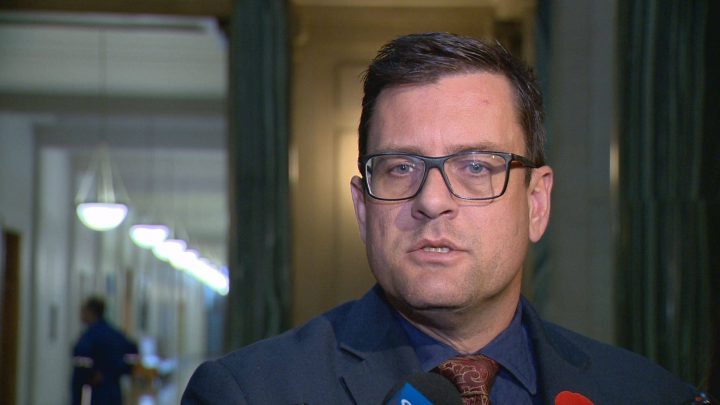Saskatchewan’s Minister of Social Services says he and his provincial and territorial counterparts are feeling left out of Ottawa’s plan to reform child welfare.

Paul Merriman and other social services ministers met in Saskatoon this week to discuss, among other things, Bill C-92, legislation aimed at reducing the over-representation of Indigenous children in foster care.
Merriman said it’s concerning that ministers were unable to speak directly with federal Minister of Indigenous Services Seamus O’Regan without representatives from national Indigenous organizations being in the room.
“Unfortunately, the minister wanted to meet with us including the national Indigenous organizations, which was a little bit troublesome,” he told The Canadian Press on Thursday.
“It created a little bit of awkwardness.”
Merriman said he and others want straight government-to-government conversations “without a lobbyist in the room,” because they have concerns about the implementation of the legislation, as well as its timing and what funding will be attached.
He believes there are many unknowns, such as what will happen to the province’s existing agreements with First Nations that are delivering child and family services.
WATCH BELOW: Sask. gov’t and STC end legal action, working together to improve child welfare

These agreements, as well as logistics of transferring jurisdiction over child welfare to First Nations, need to be figured out by elected officials, Merriman said.
The province should be more included than it has been in federal discussions about reforming child welfare, he added, because it has been providing the service for decades and has apologized for past mistakes, such as the ’60s Scoop.
“We’ve come a long way in the last five to ten years,” he said, adding his ministry has worked to keep more children in their homes by providing supports instead of removing them.
“Right now, we feel like we’re getting judged on what happened back in the ’60s and the ’70s, not on what we’re doing right now,” he said.
The Federation of Sovereign Indigenous Nations (FSIN), which represents 74 First Nations in the province, has called Saskatchewan’s child care situation a crisis.
- Life in the forest: How Stanley Park’s longest resident survived a changing landscape
- ‘They knew’: Victims of sexual abuse by Ontario youth leader sue Anglican Church
- Carbon rebate labelling in bank deposits fuelling confusion, minister says
- Buzz kill? Gen Z less interested in coffee than older Canadians, survey shows
FSIN Vice-Chief Heather Bear said the provincial government needs to accept that change is coming.
“We have never given up control of our children. The day before treaty we had our children. They were never on the table,” Bear said Friday.
“I think we need to have a discussion with the federal government and talk about the problems and issues; the ongoing condition of our children, our social childcare system. It’s broken, it’s failing us. We’ll talk to the province when we think they’re ready. I know it’s hard to let go of that control, but that day is coming, so I think the province should maybe accept that a transition is coming.”
When asked about the meeting, O’Regan said in a statement: “Bill C-92 will finally put in law what Indigenous peoples across this country have been asking of governments for decades: That their inherent jurisdiction be affirmed so that they can decide what is best for their children, their families, and their communities.”
-With files from Global News’ David Baxter

Comments